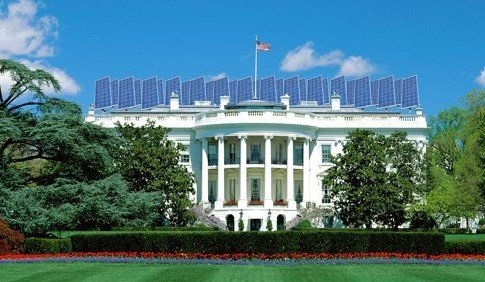THE Presidency has defended the controversial N10 billion solar power project proposed for the Aso Rock Presidential Villa, citing global best practices, including the use of solar energy at the White House in Washington D.C., United States.
Bayo Onanuga, special adviser to President Bola Tinubu on Information and Strategy, on Tuesday, shared a video clip of solar panels installed at the White House, noting that the Nigerian Presidency was only following the footsteps of developed nations in transitioning to renewable energy.
“The White House in Washington D.C. uses solar power,” Onanuga wrote in the caption accompanying the video posted on X.
His comments follow growing public backlash over the proposed multi-billion naira project. While some Nigerians have welcomed the initiative as a step towards sustainable energy and reduced dependence on the erratic national grid, others have criticised it as an extravagant move that underscores the persistent failures of Nigeria’s electricity sector.
News Point Nigeria had reported how President Tinubu’s reported approval of ₦10 billion or about €5.58m for a solar mini-grid at the Presidential Villa is more than a technical upgrade. It is a powerful political statement.
By taking Aso Rock off the national electricity grid, Nigeria’s number one citizen has done what millions of Nigerians have been forced to do – show a stark vote of no confidence in the country’s struggling national grid.
“This move carries profound symbolism. It is at once a vote of no confidence in the national grid and a bold embrace of energy decentralisation,” Collins Nweke, a former green councillor at Ostend City Council, Belgium, said.
He added, “It also raises pressing questions: if the Presidency can’t trust the national power supply, what hope is left for the average Nigerian business or household? And is this the beginning of a systemic reform? Or can this mark the cementing of elite energy privilege?”
This newspaper had reported that N10 billion was allocated in the 2025 Appropriation Act for the installation of a solar mini-grid at the Presidential Villa, following increased energy bills and unreliable electricity supply from the national grid.
Listed as ‘Solarisation of the Villa with Solar Mini Grid,’ the new capital item caused an increase in overall budgetary allocation to the State House Headquarters from N47.11bn in the initially proposed 2025 budget to N57.11bn in the approved version.
The project is expected to reduce dependence on the national grid and cut energy costs for the State House, especially considering that the Abuja Electricity Distribution Company (AEDC) listed the Presidential Villa among top government debtors, with an outstanding bill of N923.87 million in February 2024.
Critics further argue that spending N10 billion on solar infrastructure for a single location, the seat of government, sends the wrong signal in a country where millions live without access to reliable electricity.
They say the project reflects a lack of commitment to fixing the national grid and improving power distribution nationwide.
However, supporters of the initiative believe the Presidency is leading by example in embracing clean energy. Some have also pointed to the long-term cost savings and improved energy security for critical government infrastructure.







